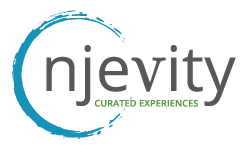Threading Some Trends Together
July 4, 2008
This post by Shel Israel and this post by Steve Rubel bear reading and examining. There’s something afoot, and it deals with several pieces of economic pie shifting at the same time. In fact, it’s a little strange that Richard Florida’s latest book, Who’s Your City?: How the Creative Economy Is Making Where to Live the Most Important Decision of Your Life, is so timely. For a little more trend connection, throw in a little bit of Seth Godin from May (this has stuck with me since then).
If you are an employer, think on this:
Connectivity is Everywhere
It costs you more money to house a work staff than it does to manage them remotely. Cost per cubicle, per in-house service, per enterprise service license. Your network bandwidth costs, your power and cooling costs, the things you have to do to keep people comfortable in an office space, are all worth reconsidering.
Afraid of how they’ll work?
Shift measurements from “being there” to “what you’ve done.” Look for deliverables that are based on pieces of information, goals met, business moved forward.
I’m at a Barnes&Noble on wifi. For $39.99 a month, I could be on Verizon EVDO and writing this by the lake where I took my daughter swimming. I can work ANYWHERE there’s a signal. So can a lot of us. In fact, I do my job much better at a remove (plus, it saves 4 hours of driving, two each way, at $66 a tank of gas twice or more a week).
The Loosely Joined Employee
The age of half-owned brands is upon us. Years ago, it was only Robert Scoble. We watched in awe as he put a whole new face on Microsoft. He then shifted over to PodTech, and it didn’t feel so strange. Is it strange at FastCompany? Kind of. Look at their latest print issue and see how many times they mention one employee, and not the boss.
Charlene Li leaving Forrester is actual news to a lot of us in this space. Why? Because probably five years ago, everyone would clamor to get IN to Forrester. (And by the way, I think it’s a great company, with good people, and all that. That’s not my point.)
But is Jeremiah Owyang about Forrester, or is he a half-owned brand that Forrester can claim for the time being?
As employers, it’s a strange situation. I cause a bit of this grief for my friends and employers at CrossTech Media for sure. Because I’m “me” quite up front, but still functioning as their partner, employee, and representative, and because I’m non-traditional and difficult and a Mac user, an stuff like that. And yet, will I become more of the norm? Will there be more businesses trying to loosely couple with personal brands while building corporate brand equity? I think so. And this doesn’t reflect on employer-employee relations. It just seems to be a shift for some classes of knowledge worker.
How Where Matters
Seth Godin’s post about conferences and workplaces strikes home doubly for me. I’m partly in the conference business. It’s my duty to convince thousands of people that I’ve got great speakers, engaging exhibitors, and passionate attendees for them to meet.
Shel Israel’s post says that more businesses will use social media tools for economical reasons, for one:
Businesses will increasingly use social media to get closer with customers. This, of course, is already happening and happening at a pretty fast rate. But I think the trend is about to accelerate. Because it is getting too expensive and inconvenient to meet face-to-face in the real world, there will be more efforts to bring the conversation to the next best place, in the form of virtual communities.
Steve Rubel says:
Digital Nomads are growing in numbers and they will create ripples. This trend will accelerate use of Web 2.0 technologies in the workplace. Over time, this may slow the efficacy of email marketing and accelerate the reliance on social media engagement.
However, it goes deeper than that. If you don’t allow your employees to become nomadic, they may do so and even compete against you in the process.
Where Will This Go?
In the very near term, I think a few things happen. I think that employers are definitely in a spot where they might have to consider how their employees work. On one side, the management challenges are huge. It’s not easy to shift around leadership and management styles. On the other hand, there are cost savings to be had, a shift in flexibility that might provide some hidden rewards. (Flex hours did this for a lot of companies. Suddenly, they had what amounted to shift workers without having to pay a premium).
I also think that the idea of employees-as-brands-as-employees will stir more bees in the shorter term, but might start to make more sense as we get more comfortable with that lifestyle. Businesses are primarily organized in 1950s-era style right now. If we can adapt measurements and management style, I believe the downstream benefits are going to outweigh the interim headaches. Will all employees at all businesses feel these changes? No. And several employees will still have to be hands on and nearby. (By the way, lots of people can’t manage themselves very well, and can’t work remotely because they’re easily distracted.)
Fuel costs are rising. Bandwidth is everywhere. Jobs are shifting into knowledge delivery and networked communities more than face-to-face affairs.
It sure makes for a complex picture, but I don’t know that we’re going to stop it.
What do you say? Could you work remotely? Do you? What has the price of fuel done for you? What motivates you to attend a face to face event these days? Will you be changing your conference going trends for the rest of the year and 2009?



